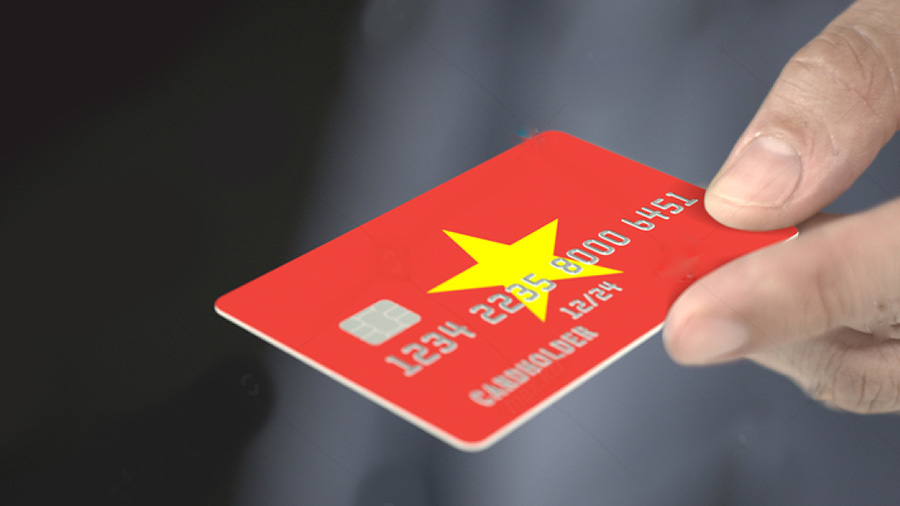The handling of weak credit institutions and stalled projects remains challenging for Vietnam’s regulators even as a proposal was drafted last year to raise the cap for foreign investment.
Parallel to this, mergers and acquisitions (M&As) in Vietnam's banking industry are gaining momentum, with 2024 poised to present both opportunities and challenges.
In this article, we discuss key growth drivers for Vietnam’s banking industry, notable deals, pivot to privatization, challenges and opportunities for investors, and emerging trends in the alternative lending market.
Record growth in 2023
In 2023, Vietnamese banks saw a significant surge in deposits, reaching over US$562.5 trillion—a 14 percent increase from 2022. This marks the fastest growth in the industry's history, reflecting strong consumer confidence in the stability and security of Vietnamese banks. This confidence has spurred heightened M&A activity within the sector.
Notable M&A transactions
Over the past five years, high value dealmaking has become more frequent in Vietnam’s banking industry. A standout deal was the nearly US$1.5 billion investment by Japan's Sumitomo Mitsui Banking Corporation in VPBank last year.
Similarly, in 2019, BIDV bank partnered with South Korea's KEB Hana Bank in a deal worth over US$756 million. These transactions underscore the growing interest of foreign investors in Vietnam's banking sector.
State ownership and privatization
As of December 2022, the state's ownership in major commercial banks was significant: 80.9 percent in BIDV, 74.8 percent in Vietcombank, 64.46 percent in Vietinbank, and 100 percent in Agribank.
Under Decision No. 986/QĐ-TTg, the government aims to reduce its ownership to at least 51 percent by 2025, further opening the sector to private and foreign investment.
Drivers of M&A activity in Vietnam’s banking industry
Weak credit institutions in a high-growth economy
Several domestic banks, including DongABank, CBBank, and Ocean Bank, have faced negative equity and significant bad loans. The State Bank of Vietnam (SBV) has placed these banks under special administration since May 2023 and is actively seeking interested buyers.
To attract foreign investment, the SBV proposed raising the foreign ownership cap in domestic banks from 30 percent to 49 percent for those taking over underperforming banks. As part of this strategy, banks like Vietcombank and Military Bank are set to acquire struggling institutions such as DongABank and Oceanbank, respectively.
In terms of Vietnam’s economic performance, Deputy Prime Minister Le Minh Khai provided a status update on May 20, and noted the stability of the economy in the first four months of 2024, with inflation under control. Further, GDP growth in the first quarter reached 5.66 percent, the highest in three years, and the economy's scale reached US$430 billion, “placing Vietnam among upper-middle-income countries”.
The average consumer price index (CPI) increased by 3.93 percent year-on-year. Realized foreign direct investment reached US$6.28 billion, up 7.4 percent, marking the highest growth in five years. Several major corporations appear committed to investing in Vietnam in sectors such as electronics, chips, semiconductors, and renewable energy.
Rising bank costs amid tighter monetary conditions
Data from the SBV revealed that as of the end of January, corporate deposits fell by about 2.4 percent from the previous year's end, amounting to VND 6,670 trillion (US$262.29 billion), marking the first monthly decrease in over two years. Deposits by individuals also declined by 0.5 percent, totaling VND 6,500 trillion.
The SBV aims for 15 percent credit growth this year, but by the end of March, bank lending had only increased by 1.34 percent from December 2023. Credit growth in Vietnam typically accelerates in the second half of the year when demand rises.
Depositors have endured several rounds of interest rate cuts over the past year as banks dealt with increased risks and a surge in bad debt due to prolonged real estate sector turmoil.
However, the situation is changing. Vietnam Technology and Commercial Joint Stock Bank raised its rates on all deposit terms by 0.1-0.4 percentage points on May 8, according to a bank employee speaking to Channel News Asia. This adjustment brought short-term deposit rates to the range of 4.55 percent to 4.95 percent.
Can Van Luc, a government adviser and economist at the Bank for Investment and Development of Vietnam, said banks in Vietnam are bolstering their deposits in anticipation of the usual increase in loan demand later in the year.
Willie Tanoto, a senior director at Fitch Ratings, commented that the recent hikes in deposit interest rates by local banks "reflect tighter monetary conditions rather than an increase in systemic stress."
Diversification of financial products
Vietnam's rapidly growing consumer class is driving demand for diverse financial products. Digital banking and e-wallets have significantly expanded the customer base of domestic banks, making them attractive acquisition targets for foreign investors seeking quick market entry.
Acquiring existing banks allows foreign investors to quickly expand their range of financial products. This diversification can enhance profitability and customer satisfaction while offering more opportunities for upselling and cross-selling.
Rising foreign investment
Foreign direct investment (FDI) in Vietnam surged in 2023, with disbursed FDI reaching an estimated US$23.18 million, a 3.5 percent increase from the previous year. In the banking sector, notable FDI included Sumitomo Mitsui Banking Corporation's US$1.5 billion investment in VPBank and AEON Group's acquisition of Postal Finance Company Limited for US$175.2 million.
Challenges faced by foreign investors in the banking industry
Appraisal difficulties
Evaluating smaller banks can be challenging due to inconsistent financial reporting and delays. The use of Vietnam Accounting Standards (VAS) versus International Financial Reporting Standards (IFRS) further complicates the assessment, as most global investors are accustomed to IFRS.
Cultural differences
Cultural and operational differences between Vietnamese and foreign banks also pose challenges. These include variations in management styles and corporate culture, which can affect the integration process post-acquisition.
Trends in the Vietnam payments and lending sector
Digital payments boom
The rise of Vietnam's e-commerce and fintech sectors have spurred growth in digital payments. In 2023, Vietnam experienced the fastest growth in digital payments in Southeast Asia, with a 19 percent increase from the previous year. This growth is expected to continue at a 13 percent CAGR through 2025, supported by collaborative efforts from the State Bank, Ministry of Public Security, and Ministry of Information and Communications.
Alternative lending and the ‘buy now, pay later’ phenomenon
The alternative lending market in Vietnam is expected to expand at a compound annual growth rate (CAGR) of 19.3 percent, growing from US$304.7 million in 2022 to US$818.7 million by 2027.
The burgeoning domestic fintech ecosystem, coupled with the entry and expansion of regional and global players, is enhancing the competitive landscape.
Small and medium-sized enterprises (SMEs) in Vietnam are increasingly turning to alternative lenders due to the challenges and costs associated with accessing traditional credit. For instance, Funding Societies, a Singapore-based financing platform, entered the Vietnamese market in 2022 and has since facilitated over US$70 million in financing in Vietnam to SMEs across various industries, including agriculture, services, and construction. As per an April 2023 report, Funding Societies provided SME financing worth US$3 billion over more than 5 million transactions across Southeast Asia.
Additionally, the expanding buy now pay later (BNPL) market is providing a boost by offering consumers flexible, short-term lending solutions. According to an industry report released by ResearchAndMarkets in April 2024, BNPL payments in Vietnam are expected to reach US$3.33 billion this year at an annual growth rate of 41.8 percent.
Outlook for 2024
With domestic banks seeking capital, a burgeoning consumer market, robust SME financing needs, and emerging challengers to traditional banking institutions, foreign investors will find ample scope for growth in the Vietnam market. However, walking the regulatory tightrope may temper initial enthusiasm and means due diligence is essential.
For detailed guidance, foreign credit and lending firms and investors interested in exploring opportunities in the banking industry can consult with the business advisory experts at Dezan Shira & Associates’ Vietnam offices.
(US$1=VND 25,430).
[credit]









